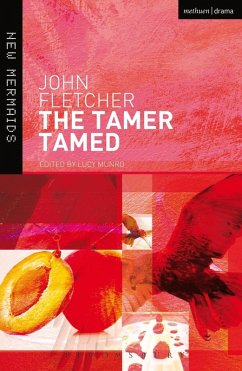The Tamer Tamed is the subtitle or alternative title to John Fletcher's The Woman's Prize, a comedic sequel and reply to The Taming of the Shrew.
The plot switches the gender roles of Shakespeare's play: the women seek to tame the men. Katherine (the "shrew" of the original) has died, and Petruchio takes a second wife, Maria. Maria denounces her former mildness and vows not to sleep with Petruchio until she "turn him and bend him as [she] list, and mold him into a babe again." After many comedic exchanges and plot twists, Petruchio is finally "tamed" in the eyes of Maria, and the play ends with the two reconciled. The play is seen to reflect how society's views of women, femininity, and "domestic propriety" were beginning to change. It is said that Fletcher wrote this play to attract Shakespeare's attention - the two went on to collaborate on at least three plays together.
This brand new New Mermaid edition offers unique and fresh insight into the critical interpretation of the play. It builds on current critical foundations (the relationship with Taming of the Shrew, gender relations etc) and suggests different areas of interest (popular associations of the shrew, the question of reputation, and a re-examination of the play's structure). as well as examining stage history and recent productions.
The plot switches the gender roles of Shakespeare's play: the women seek to tame the men. Katherine (the "shrew" of the original) has died, and Petruchio takes a second wife, Maria. Maria denounces her former mildness and vows not to sleep with Petruchio until she "turn him and bend him as [she] list, and mold him into a babe again." After many comedic exchanges and plot twists, Petruchio is finally "tamed" in the eyes of Maria, and the play ends with the two reconciled. The play is seen to reflect how society's views of women, femininity, and "domestic propriety" were beginning to change. It is said that Fletcher wrote this play to attract Shakespeare's attention - the two went on to collaborate on at least three plays together.
This brand new New Mermaid edition offers unique and fresh insight into the critical interpretation of the play. It builds on current critical foundations (the relationship with Taming of the Shrew, gender relations etc) and suggests different areas of interest (popular associations of the shrew, the question of reputation, and a re-examination of the play's structure). as well as examining stage history and recent productions.









